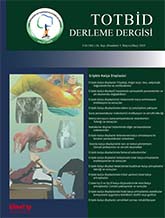
Developmental hip dysplasia is characterized by abnormal development of the acetabulum and proximal femur and is the most common cause of early osteoarthritis (OA). Total hip arthroplasty (THA) is the gold standard treatment for dysplastic hip OA; however, it presents greater technical challenges and complications compared to primary OA. In dysplastic acetabular reconstruction, grafted and non-grafted techniques are utilized. Non-grafted reconstruction is performed by placing the uncemented acetabular component proximally to the anatomical rotation center. This technique offers advantages such as shorter surgical duration, reduced need for osteotomy, lower risk of nerve injury, and decreased blood loss. However, complications such as polyethylene wear, aseptic loosening, and abductor muscle insufficiency have been reported. Grafted reconstruction, on the other hand, involves securing an autograft obtained from the resected femoral head or neck to the acetabular defect. While this method preserves the anatomical hip rotation center and provides adequate bone support, it has disadvantages such as graft resorption, sciatic nerve palsy, and prolonged surgical duration. The long-term clinical outcomes of both techniques remain controversial in the literature. The high hip rotation center (HHRC) technique has been shown to facilitate both surgical procedures and postoperative recovery. Due to the limited data and studies comparing these two methods, the optimal approach should be determined based on patient characteristics, surgical experience, and implant selection.